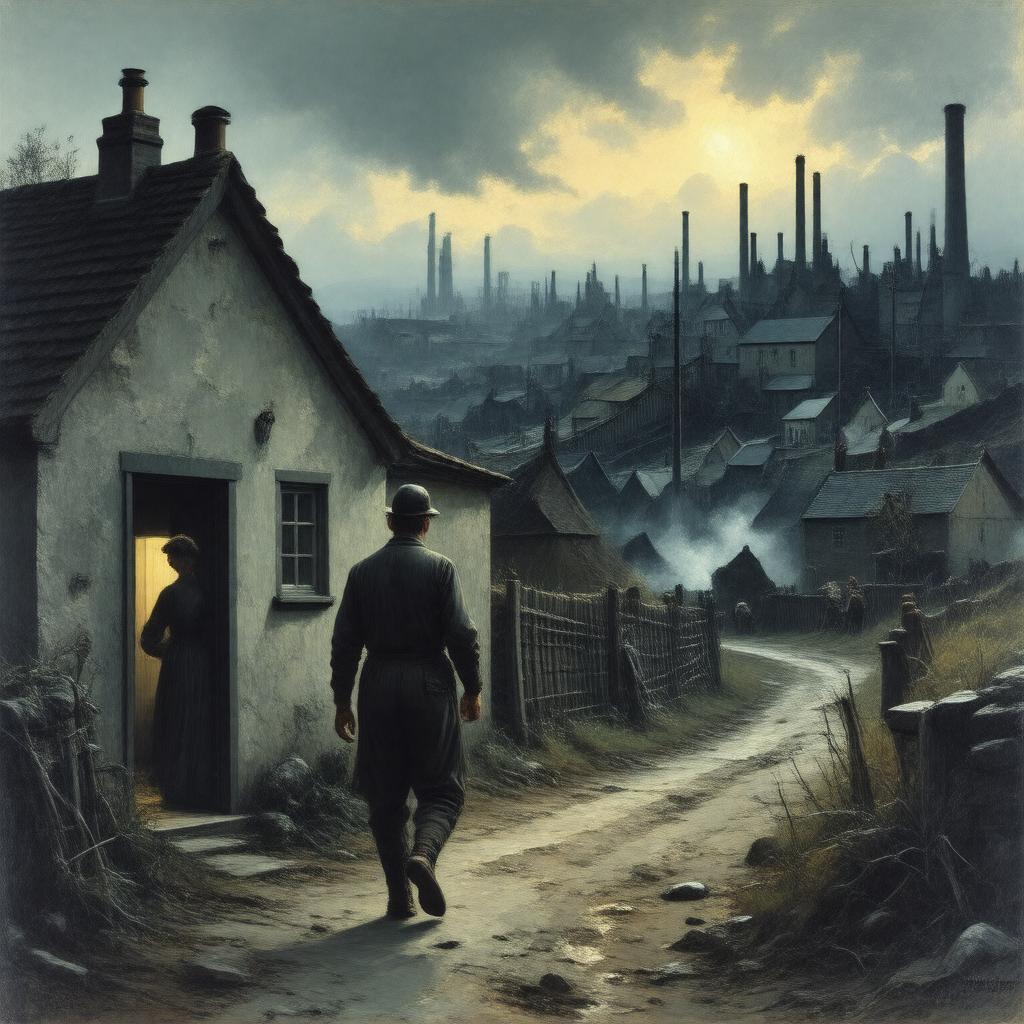Prompt
"Generate an image of a early 20th-century English mining town in Nottinghamshire, with a subtle, impressionistic style reminiscent of modernist literature. In the foreground, a struggling coal miner, representing Walter Morel, walks away from a small, dimly lit cottage, while his wife, Gertrude, looks on from the doorway, conveying the tense, Oedipal relationships within the family. In the background, a sprawling, industrial landscape with coal mines and factories looms, symbolizing the clash between nature and industry, and the suffocating effects of working-class life."

